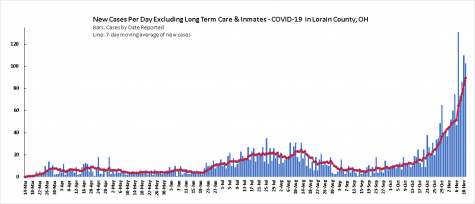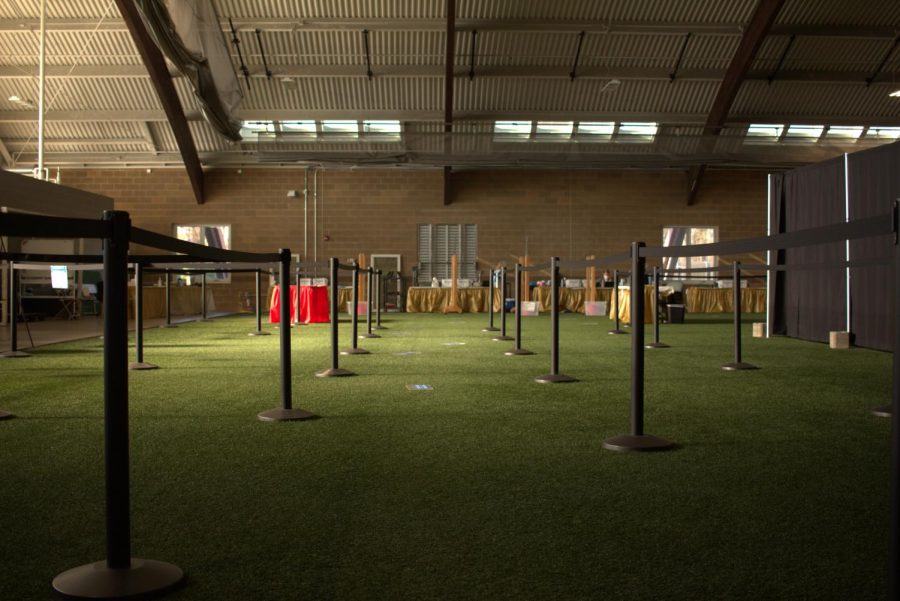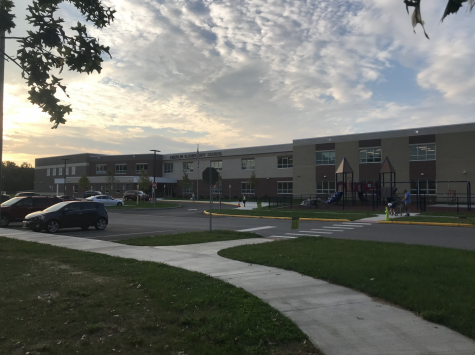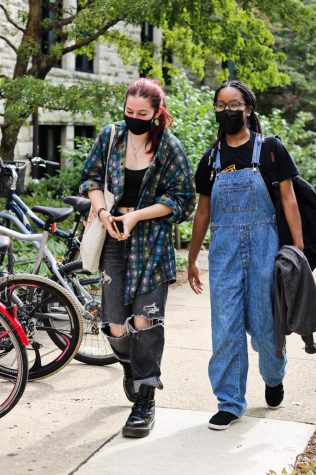DeWine Warns Ohio Colleges Might Not Reopen in January
Students were tested for COVID-19 once a month at the Heisman Club Field House during the spring 2020 semester. Testing currently takes place at Hales Gymnasium.
Ohio Governor Mike DeWine warned in a press conference yesterday that colleges and universities might not be allowed to welcome students back to campus in January if COVID-19 cases do not decline in the coming weeks. The warning comes as cases are skyrocketing in Ohio, with 68 of Ohio’s 88 counties in a “code red” level of “very high” exposure and spread — including Lorain County.
“Unless we dramatically slow the community spread of the virus, our higher education institutions may have to remain virtual when school opens in January,” DeWine said. “With wide-spread COVID, they may have no choice.”

In addition to issuing a warning for colleges, DeWine cautioned that bars and restaurants might be ordered to close in the coming weeks. He also added new provisions to the statewide mask order, making stores responsible for ensuring that employees and customers wear masks.
President Ambar says that if DeWine is slow to make an announcement about higher education, the College may make its own call as to whether Oberlin will have an in-person, delayed, or remote spring semester. This would allow students to have adequate time to prepare for a change of plans.
She also says that her heart goes out to the College third-years, who are off campus this fall as part of the three-semester plan.
“I think to myself, ‘Oh my goodness, if we have to say to our juniors that we are remote in the spring, or if we have to say to them that we are delayed, and they have been off campus since March, I just don’t know if I have the heart to do it,’” President Ambar said in an interview with the Review. “They’ve been through the ringer and they sacrificed a lot. They deserve a chance to come back.”
College COVID-19 Campus Health Coordinator Katie Gravens says that it is impossible to guess where the state’s spread will be in January or how likely it is that courses will need to go fully remote.
“I think we just have to wait and see,” Gravens said. “You always hope for that ideal scenario, but I think you have to be realistic and say, ‘Okay, if we can’t come back, what could be our next option?’ … We are always trying to prepare and be ready and have all of our processes lined up so that we could manage anything that happens, but we can’t control what’s happening outside here.’’
While Oberlin campus’ cases have remained consistently low — with an average of one case for every 420 tests administered, or a 0.24 percent positivity rate — cases in surrounding areas are increasing faster than ever before. At the beginning of the pandemic, it took almost four months from March 3 for Ohio to reach its first 50,000 cases; in early November, Ohio had 50,000 new cases in a matter of 13 days.
Hospital leaders throughout the state have expressed concerns that the increase in cases — and as a result, hospitalizations — could lead to hospitals having to turn away some patients. However, Charlotte Wray, president of Mercy Allen Hospital and chief operating officer of Mercy Health Lorain, says that the local hospitals are prepared.
“In Lorain County, we’re really fortunate because we collaborate so effectively with our municipal leaders, with our health department, and amongst the three hospital systems that are in Lorain County — we have routine dialogue,” Wray said. “The resources are there. We’ve got personal protective equipment, we’ve got all of the things that we need to take care of COVID patients at all locations.”
Mercy Allen Hospital in Oberlin is designated as a critical access hospital — one that is smaller and serves more rural communities. As a result, Mercy Allen Hospital does not treat COVID-19 patients, and Oberlin residents who need to be hospitalized for COVID-19 complications are instead sent to a hospital in Lorain. Despite this, Wray has seen a rise in non-COVID-19 hospitalizations in Mercy Allen Hospital, which has only 25 beds.
“We’ve had many days where the ER is very, very busy — where we’ve had [more than] 20 patients in the hospital,” Wray said. “One of the strongest messages I’ve tried to send is you’ve got to get your regular care. Chronic disease didn’t stop because of COVID. Cancer hasn’t stopped because of COVID. You may have a disease or a diagnosis that you didn’t have the last time you talked to your doctor, and if you’re seven months behind because of COVID and you don’t want to see your doctor, you could actually be making yourself slightly higher risk for other illnesses.”
Wray says that the uptick in cases has taken a toll on health care workers, who are often overworked and at risk of contracting the virus.
In DeWine’s press conference on Thursday, he urged people to take it upon themselves to protect their communities.
“Fellow Ohioans, there are few times in our lives where we can do something, or refrain from doing something, that will or can save a life — this is one of those rare times,” DeWine said. “This pandemic gives each of us the chance to serve a higher cause, a more noble purpose than just ourselves. … What you do in your private lives affects everyone. Please don’t host that birthday party or that baby shower or that kid’s sleepover or get together to watch the football game.”
Gravens, too, hopes that students and non-students alike will help stop the spread.
“Oberlin hopes to have classes in spring — that’s what we’ve been planning for,” Gravens said. “We’ve been very successful this semester; it’s been a great semester. Everyone is so proud of students and what we have pulled off. … Everybody needs to do their part. Yes, everyone’s tired, but we can do this. We’ve done a great job, and so we just need to keep that momentum going.”
Gravens is planning new and creative precautions for the College to put in place in the spring.
“[We’re] looking at a much less expensive and a more effective rapid test,” Gravens said. “If we could do that — instead of the PCR testing that we’re doing, which is more expensive, labor-intensive, and not a quick turnaround — that can transform what we do. … Our goal is to get things back to normal as soon as possible, because we know this is not an ideal situation. I think there’s a lot of hope even though things are serious now.”
Oberlin students and parents will be updated as soon as the College has further information about the spring semester.
“We are in touch with the Governor’s Office to offer feedback and to learn when Governor DeWine might make a determination on the Spring Semester’s start,” Ambar wrote. “As state officials provide more clarity, we will be ready to provide you with an update to our plans.”








